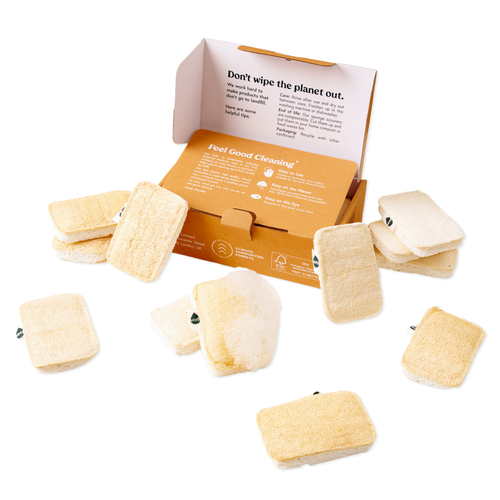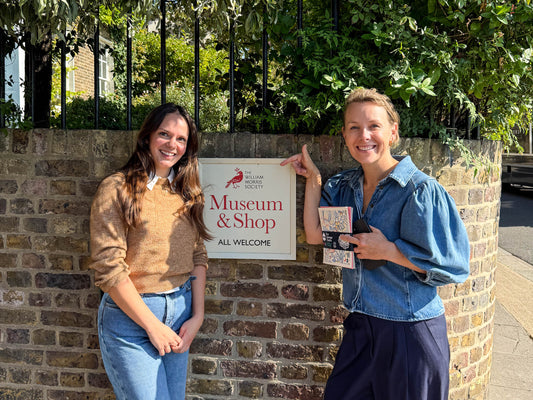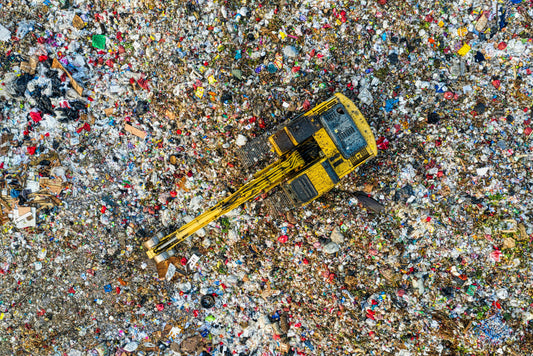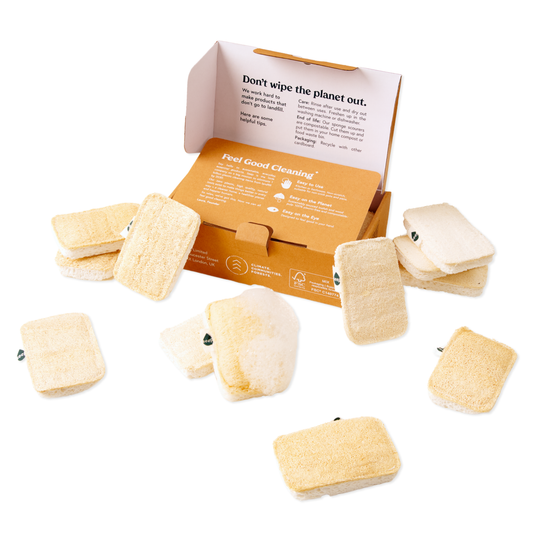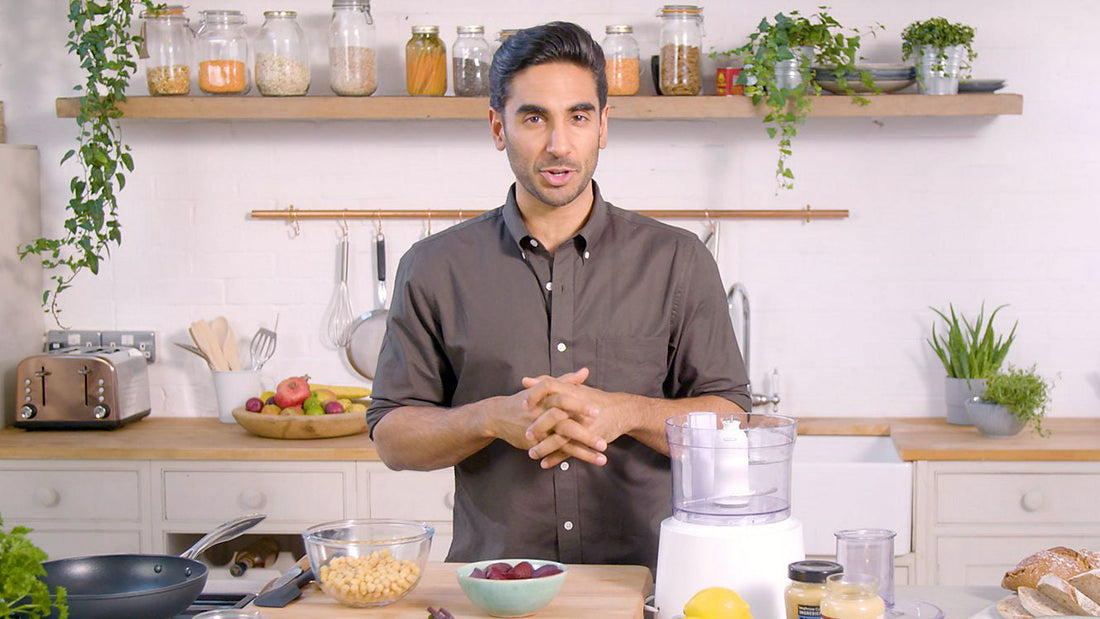
Humans can be exposed to microplastics through skin contact, inhalation and ingestion — today we're focusing on the latter. Laura, founder of eco cleaning tools brand Seep, sat down with Dr Rupy Aujla to discuss the risks that plastics and microplastics pose to health.
As plastic debris constantly enters and accumulates in oceans and marine ecosystems, and marine animals mistake it for food, a wide range of microplastics has been detected in seafood products, making it the main source of these food contaminants in our diets, followed by drinking water and salt.

Microplastics have also been detected in farming soils and so these have worked their way into honey, sugar, fruits, vegetables, cereals, meats, dairy products, as well as tea, beers, soft drinks and energy drinks. They are also in lots of food packaging to keep products protected and allow them to last longer.
As a result, there are many different pathways for microplastics to enter the food chain, and exposure to microplastics through ingestion is pretty hard to avoid for humans. Microplastics in food have some nasty chemicals in them and so a number of health problems have been linked to them: alterations in the endocrine system, immune response, oxidative stress, genomic instability, neurotoxicity, reproductive abnormalities, embryotoxicity, among others.
Listen to the amazing podcast episode that Dr. Rupy recorded last year with Dr. Shanna Swan about the consequences of exposure to plastics, petrochemicals and pesticides on the endrocrine system and fertility below.
Dr. Rupy shares 3 plastic-free swaps he has made in his kitchen that reduce microplastics in food
-
Switching plastic chopping boards for marble, bamboo or wooden chopping boards. With wear and tear, plastic chopping boards release microplastics that could end up in your food or be washed into the water system. Dr. Rupy recommends investing in a marble, bamboo or wooden chopping board instead, with his favourite being Tog's chopping boards.
-
Switching plastic bottles for glass bottles. The presence of microplastics in drinking water has been confirmed by many studies in different locations and different types of waters (tap, bottled and groundwater), but some studies show that the dietary exposure to microplastics from bottled water tends to be greater than from tap water. Dr. Rupy recommends ditching plastic bottles and adopting a reusable glass water bottle to keep in the fridge and for serving.
-
Switching plastic sponges and cloths for plastic-free sponges and cloths. Like chopping boards, plastic sponges and cloths release microplastics with use. As both are used to clean cookware and utensils, they could leave plastic particles behind. Dr. Rupy uses Seep in his kitchen. Our products are made from natural materials; plus, our sponges are compostable and our bamboo cloths are recyclable.
 |
Dr. Rupy Aujla is an NHS medical doctor who created The Doctor's Kitchen as a way of teaching people how they can cook their way to health. |
 |
Laura is the founder of Seep, the little company on a big mission to eliminate 1 billion plastic cleaning tools from landfill by 2030. |
Sources
https://www.ncbi.nlm.nih.gov/pmc/articles/PMC8834762/
https://www.ncbi.nlm.nih.gov/pmc/articles/PMC7171031/
https://pubmed.ncbi.nlm.nih.gov/37220346/
